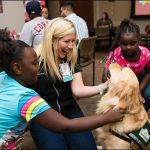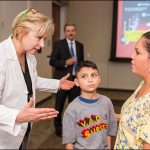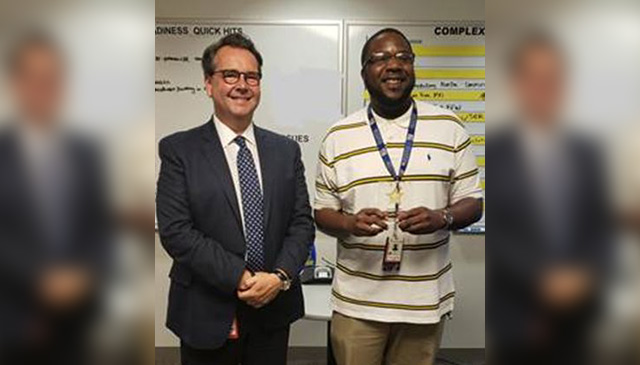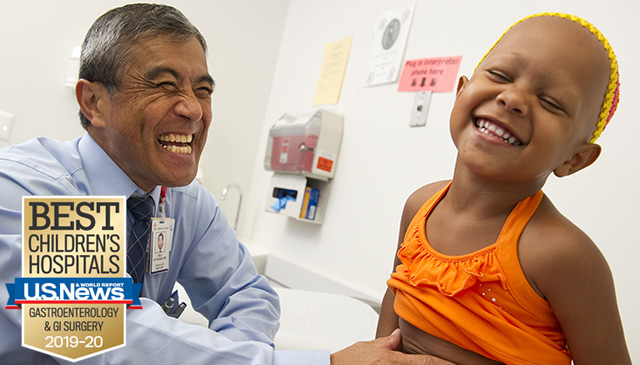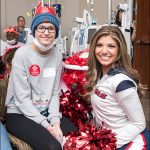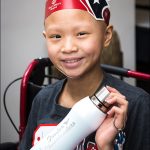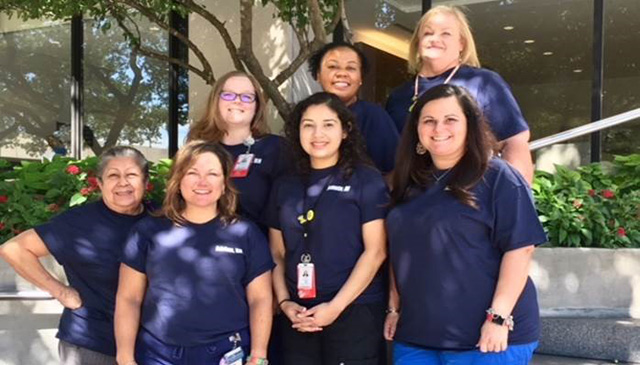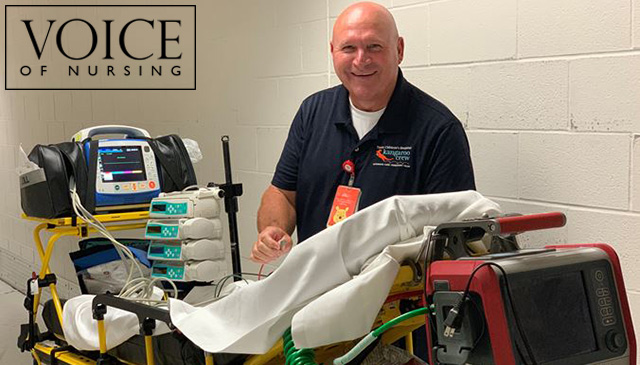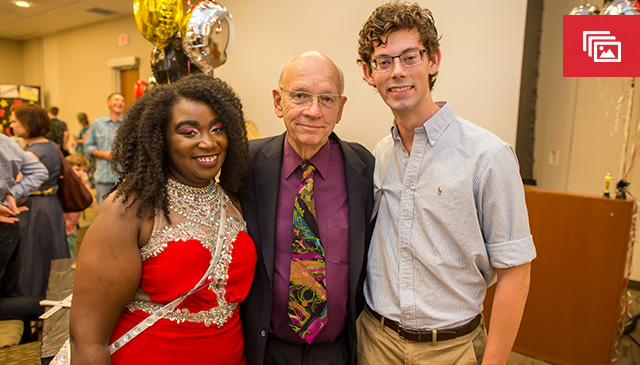
A group of 25 Texas Children’s ventricular assist device (VAD) patients of all ages and more than 100 other guests, including families, caregivers and guest speakers, recently attended the second annual VAD celebration – “A Night with VAD Superstars.”
There was plenty of food, a visit from Child Life Specialist Adair Galanski with Bailey – the dedicated therapy dog for Lester and Sue Smith Legacy Tower – and games and activities provided by Physical Therapy, Occupational Therapy and Child Life.
The evening was emceed by Barbara Elias, VAD coordinator and the event’s founder, who started the celebration as a way to honor patients currently on heart pump or circulatory support, or those patients who have previously been on support but have had their pump removed or received a transplant. The VAD celebration also honors families and caregivers and has quickly become an outlet for information exchange and networking.
“Device patients are a special group that lead challenging lives, and their families and caregivers are with them every step of the way for what is sometimes a very long journey,” said Elias. “This event serves many purposes: It provides a forum for families to meet one another, share their experiences and build a community. It allows parents of children with VADs to meet other children or adults who have lived through the experience and persevered. And it gives caregivers – especially those from the ICU, who have seen these patients at their worst – an opportunity to see these patients living their lives and doing well.”
The evening’s speakers included Dr. William Dreyer, Texas Children’s medical director of Heart Failure, Cardiomyopathy and Cardiac Transplant; Dr. Lara Shekerdemian, chief of Critical Care; and Texas Children’s heart surgeon Dr. Iki Adachi. Attendees also heard from special guest speaker Dr. Richard Wampler, the inventor of Medtronic’s HeartWare® HVAD pump, a device frequently used in Texas Children’s patients. In turn, the event gave Wampler an opportunity to see firsthand how his invention has positively affected the lives of so many children at Texas Children’s.
“This event was testimony to what our VAD program has accomplished over the last decade,” said Adachi. “There is no doubt that VAD support has provided our patients with a chance for life. It was a pleasure seeing and sharing the happiness generated by such life-saving therapies with patients, families and medical colleagues.”
The VAD program’s expertise was on display in the evening’s two special patient honorees, Eugene Carrette and Jameson Finney. Eugene, who is from Belgium, was the smallest and youngest patient to receive a VAD since the beginning of the program. Thanks to the expert care he received at Texas Children’s, he has been able to travel with his family to Europe recently, a phenomenal feat for a young VAD patient. Jameson Finney earned the nickname “Daredevil” for living life to the fullest while on a device, running, golfing and riding bikes until receiving a heart transplant in 2018. Both the VAD implantation and the transplant were performed by Adachi. Jameson has been doing well since his transplant and continues to lead an active life.
The event concluded with a special moment of sharing and reflection. During this emotional and cathartic time of testimony, patients, families and caregivers who wished had the opportunity to share their stories and to speak frankly about living with a VAD. Many also thanked the experts at Texas Children’s for the care they received and how it has empowered them to live their lives.
“The event was extremely well received and was powerful for everyone in attendance,” said Elias. “I would like to thank Dr. Adachi, Dr. Hari Tunuguntla, my partner, VAD coordinator Jason McMullen, RN, the Heart Center Social Committee, and therapies including Physical and Occupational Therapy and Child Life, whose efforts allowed the event to occur.”
Texas Children’s Heart Center® was recently named the No. 1 pediatric heart center in the country for a third straight year by U.S. News & World Report. The VAD program is part of the Heart Failure Program and is one of the busiest pediatric programs in the country. There are currently 15 VAD patients in the program. Seven of those are full-time students.
Learn more about the Heart Center and its recent U.S. News ranking.



